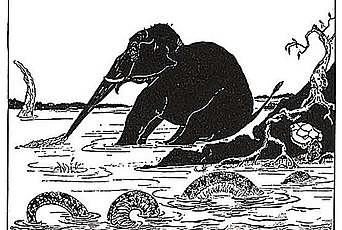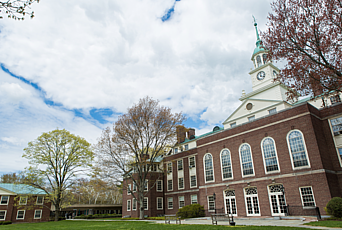Theoretical Neuroscientist Misha Tsodyks Joins Faculty of the Institute for Advanced Study
Press Contact

Michail “Misha” Tsodyks, a world-leading theoretical neuroscientist, will join the Faculty of the School of Natural Sciences as C.V. Starr Professor in the Simons Center for Systems Biology at the Institute for Advanced Study, effective July 1, 2019.
Currently a Professor in the Department of Neurobiology at the Weizmann Institute of Science in Israel and a Visiting Professor at Columbia University, Tsodyks’s research is focused on theoretical neuroscience, in particular on identifying neural algorithms that define functions of cortical systems. His analytical and numerical results have also had a strong impact on advancing a quantitative understanding of brain function and human cognitive abilities.
“Broad in scope and exacting in detail, Misha’s exploration of neural mechanisms of cognition has propelled the field forward. He has demonstrated the importance of sparsity in neural networks, clarified the mechanisms of short-term synaptic plasticity, and provided deep insights into working memory,” stated Robbert Dijkgraaf, IAS Director and Leon Levy Professor. “As a theoretical neuroscientist, physicist, and quantitative researcher, Misha will complement and enhance the work of the Simons Center for Systems Biology while forging connections throughout the Institute and sustaining his fruitful collaborations with the Weizmann Institute.”
Recognized by theorists and experimentalists alike for his original thinking, Tsodyks has developed concepts that have influenced several important areas of neurobiology. Among his principal achievements are his description and interpretation of short-term synaptic plasticity; solving a highly influential model of associative memory; enhancing understanding of how inhibition plays a stabilizing role in neural circuits; and addressing the paradox between the large capacity of human long-term memory and its limited recall ability. He has also helped researchers better understand various phenomena connected with higher cognitive functions, such as storage and retrieval of working memories in cortical systems, as well as the coding and retrieval of spatial information within the hippocampus during navigation.
“I am delighted that Misha Tsodyks will join our theoretical biology community at the Institute. His approach, based in the tradition of theoretical physics and solidly anchored in experimental neurobiology, led him already to many interesting results,” stated Stanislas Leibler, Professor in the School of Natural Sciences. “I hope that the academic environment of the Institute will allow him to pursue further his quest for better understanding of human cognition.”
Working with large amounts of data, Tsodyks formulates problems in quantitative terms, achieving a unique blend of mathematical beauty and biological relevance. A prolific collaborator, his work is also marked by a rare balance between theoretical and practical concerns, repeatedly devising elegant conceptual models in a range of different topics that make quantitative testable predictions for experiments. Tsodyks’s physical approach to modeling is particularly compelling, echoing the work of John Hopfield, neural network pioneer and former Institute Visiting Professor, who remains active within the Simons Center for Systems Biology.
“I am very happy and grateful for the opportunity to join the IAS and benefit from its fantastic intellectual environment,” remarked Tsodyks.
Tsodyks received his Ph.D. in 1987 from the L.D. Landau Institute for Theoretical Physics in Moscow and earned his M.Sc. from the Moscow Physical-Technical Institute in 1983. Tsodyks has been at the Weizmann Institute of Science since 1995 and was promoted to full Professor in 2005. Since 2010 he has also been associated with Columbia University, first as an Adjunct Professor and then, since 2015, as a Visiting Professor. He is the recipient of various fellowships and a 2017 winner of the Mathematical Neuroscience Prize from Israel Brain Technologies.
The C.V. Starr Professorship is endowed by a generous grant from The Starr Foundation.


